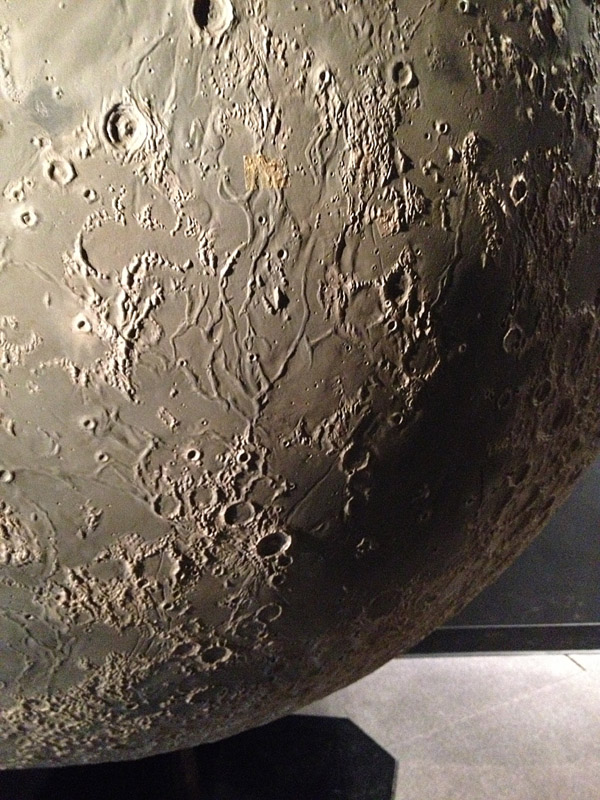Difference between revisions of "August 21, 2013"
| Line 1: | Line 1: | ||
__NOTOC__ | __NOTOC__ | ||
=Gorgeous Globe= | =Gorgeous Globe= | ||
| − | |||
<!-- ws:start:WikiTextHeadingRule:0:<h1> --> | <!-- ws:start:WikiTextHeadingRule:0:<h1> --> | ||
<table class="wiki_table"> | <table class="wiki_table"> | ||
<tr> | <tr> | ||
<td><!-- ws:start:WikiTextLocalImageRule:14:<img src="/file/view/LPOD-Aug21-13.jpg/445790706/LPOD-Aug21-13.jpg" alt="" title="" /> -->[[File:LPOD-Aug21-13.jpg|LPOD-Aug21-13.jpg]]<!-- ws:end:WikiTextLocalImageRule:14 --><br /> | <td><!-- ws:start:WikiTextLocalImageRule:14:<img src="/file/view/LPOD-Aug21-13.jpg/445790706/LPOD-Aug21-13.jpg" alt="" title="" /> -->[[File:LPOD-Aug21-13.jpg|LPOD-Aug21-13.jpg]]<!-- ws:end:WikiTextLocalImageRule:14 --><br /> | ||
| − | <em>image by [mailto:tychocrater@yahoo.com CAW]</em><br /> | + | <em>image by [mailto:tychocrater@yahoo.com" rel="nofollow CAW]</em><br /> |
</td> | </td> | ||
| − | <td>While in Tucson last week I examined the best Moon globe I've ever seen. It was at the Flandrau Planetarium at the University of Arizona campus, right next to the Lunar and Planetary Lab with its [http://lpod.wikispaces.com/August+17%2C+2013 Wright globe]. This globe, or hemisphere actually, looks like it is about 1 to 1.5 m in diameter. It has a three-dimensional surface so that as spotlights are moved, shadows grow or shrink. There is no documented information about its origins but it is said to have been made to be a backdrop for interviews at JPL during the Ranger program of the early 1960s. (And it was the backdrop for an interview I gave last week.) Is this the same globe [http://www.lpod.org/archive/LPOD-2004-07-29.htm seen] behind Ewen Whitaker and Gerard Kuiper during Ranger 6? Whatever its provenance it has a very detailed and realistic depiction of surface features. As seen here, looking from Bullialdus near the bottom up to Reinhold at top, perhaps the most conspicuous features are the wrinkle ridges in Mare Cognitum. They seem to be portrayed with a very low illumination that exaggerates their prominence. I don't know how the globe was produced; if it had just been made I would say that it was carved in a soft wax by a computer-controlled laser that tracked the LRO altimetry data file. But this was made in the early sixties when the best images were not as good as what many amateurs now produce every night in their back yards. I hope some one has more information about this remarkable globe. Oh yes, can you see an obvious error in the globe?. <br /> | + | <td>While in Tucson last week I examined the best Moon globe I've ever seen. It was at the Flandrau Planetarium at the University of Arizona campus, right next to the Lunar and Planetary Lab with its [http://lpod.wikispaces.com/August+17%2C+2013 Wright globe]. This globe, or hemisphere actually, looks like it is about 1 to 1.5 m in diameter. It has a three-dimensional surface so that as spotlights are moved, shadows grow or shrink. There is no documented information about its origins but it is said to have been made to be a backdrop for interviews at JPL during the Ranger program of the early 1960s. (And it was the backdrop for an interview I gave last week.) Is this the same globe [http://www.lpod.org/archive/LPOD-2004-07-29.htm" rel="nofollow seen] behind Ewen Whitaker and Gerard Kuiper during Ranger 6? Whatever its provenance it has a very detailed and realistic depiction of surface features. As seen here, looking from Bullialdus near the bottom up to Reinhold at top, perhaps the most conspicuous features are the wrinkle ridges in Mare Cognitum. They seem to be portrayed with a very low illumination that exaggerates their prominence. I don't know how the globe was produced; if it had just been made I would say that it was carved in a soft wax by a computer-controlled laser that tracked the LRO altimetry data file. But this was made in the early sixties when the best images were not as good as what many amateurs now produce every night in their back yards. I hope some one has more information about this remarkable globe. Oh yes, can you see an obvious error in the globe?. <br /> |
<br /> | <br /> | ||
| − | <em>[mailto:tychocrater@yahoo.com Chuck Wood]</em><br /> | + | <em>[mailto:tychocrater@yahoo.com" rel="nofollow Chuck Wood]</em><br /> |
<br /> | <br /> | ||
<strong>Related Links</strong><br /> | <strong>Related Links</strong><br /> | ||
Revision as of 21:49, 4 January 2015
Gorgeous Globe
 image by " rel="nofollow CAW |
While in Tucson last week I examined the best Moon globe I've ever seen. It was at the Flandrau Planetarium at the University of Arizona campus, right next to the Lunar and Planetary Lab with its Wright globe. This globe, or hemisphere actually, looks like it is about 1 to 1.5 m in diameter. It has a three-dimensional surface so that as spotlights are moved, shadows grow or shrink. There is no documented information about its origins but it is said to have been made to be a backdrop for interviews at JPL during the Ranger program of the early 1960s. (And it was the backdrop for an interview I gave last week.) Is this the same globe " rel="nofollow seen behind Ewen Whitaker and Gerard Kuiper during Ranger 6? Whatever its provenance it has a very detailed and realistic depiction of surface features. As seen here, looking from Bullialdus near the bottom up to Reinhold at top, perhaps the most conspicuous features are the wrinkle ridges in Mare Cognitum. They seem to be portrayed with a very low illumination that exaggerates their prominence. I don't know how the globe was produced; if it had just been made I would say that it was carved in a soft wax by a computer-controlled laser that tracked the LRO altimetry data file. But this was made in the early sixties when the best images were not as good as what many amateurs now produce every night in their back yards. I hope some one has more information about this remarkable globe. Oh yes, can you see an obvious error in the globe?.
|



